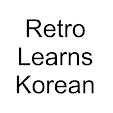If you're not learning Korean and are just looking for webtoon recommendations, I will leave the English names, feel free to skip the intro.
Webtoons are great for those first starting out reading or those that want something more relaxed than walls of text. The biggest advantage is that they are a lot more comprehensible due to the drawings giving you information about what is happening in the plot.
Obviously due to the lower density of the text, vocabulary acquisition will be lower. For me I can cover much more content in a book than I can with webtoons, most likely due to the need to constantly scroll to get to the text, where as with a large walls of text there is no distraction from the text.
An understated advantage of webtoons is that because they are solely spoken text and less descriptive vocabulary they are a great way to get to speaking earlier. If your main aim is to speak then it might be a good idea to spend most of your reading time on webtoons instead of texts that are less conversational.


